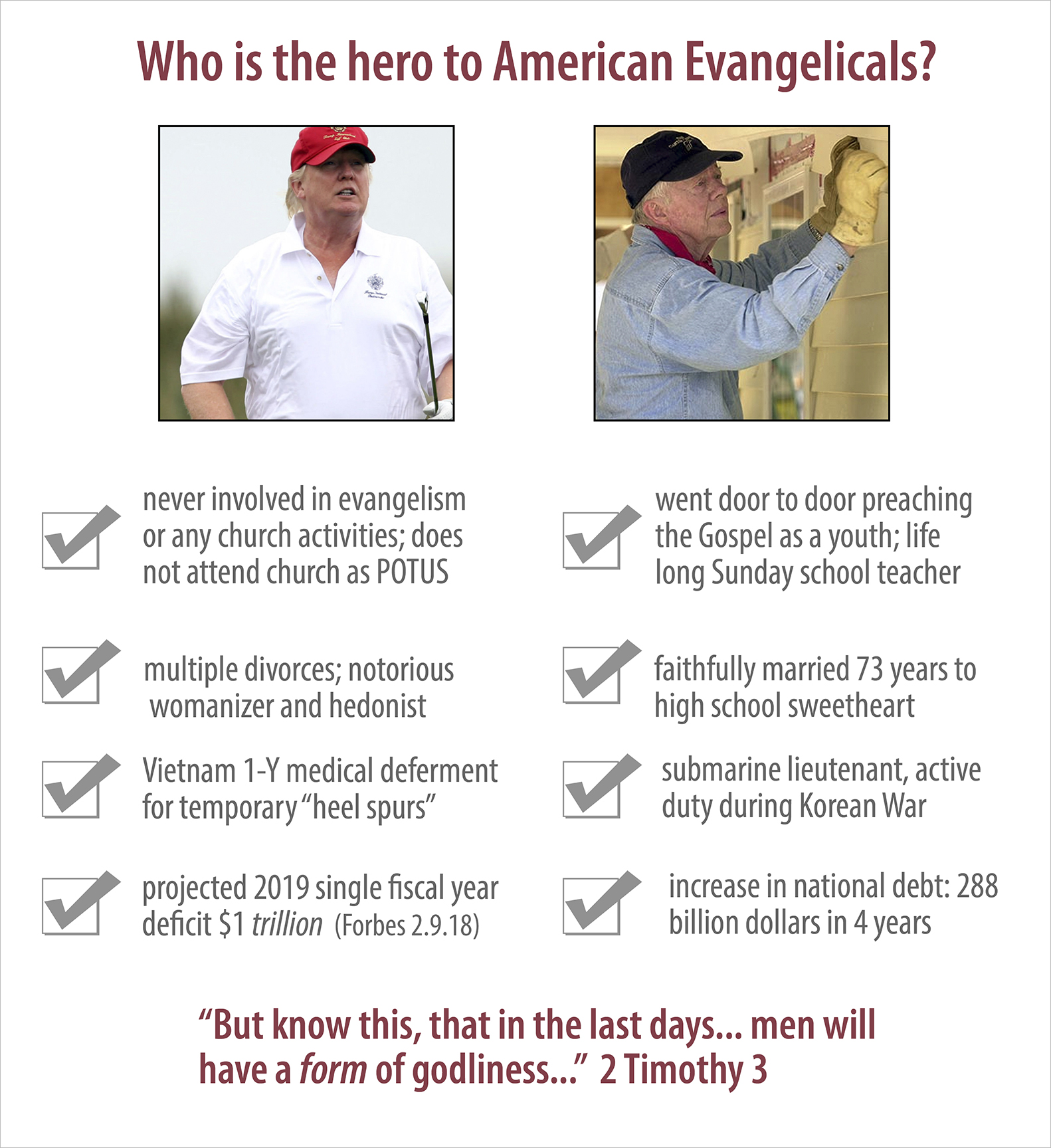In American political discourse, few alliances are as paradoxical as that between Evangelical Christians and their chosen political figures. The image above highlights this paradox by contrasting two men—one known for his lifelong dedication to faith and service, the other a powerful yet controversial political leader.
Read more: The Power of Politics Over ChristiansOn one side, we see a man who embodies Christian values in action: lifelong church service, missionary work, marital fidelity, and military duty. On the other, a leader whose personal history includes multiple divorces, financial extravagance, and a questionable record of religious commitment. Yet, in the eyes of many Evangelical voters, the latter is the hero.
This raises a fundamental question: How much does faith actually matter in politics? If Christian values emphasize humility, service, and moral integrity, why do so many faithful voters prioritize power and political allegiance over personal character?
The answer may lie in the shifting landscape of religious influence in politics. In the past, faith communities often judged leaders based on their personal morality and adherence to religious teachings. Today, political identity frequently overshadows spiritual values. Many Evangelicals rally behind leaders who promise to fight for their interests—whether on social issues, judicial appointments, or cultural battles—even if those leaders’ personal lives contradict the faith they claim to represent.
This phenomenon is not unique to one political party or ideology. Throughout history, religious groups have aligned themselves with political figures who offer power, influence, or protection, sometimes at the expense of their own foundational beliefs.
The image ends with a verse from 2 Timothy 3, warning of a time when men will “have a form of godliness” but lack its true essence. It serves as a stark reminder that appearances and political rhetoric should not define faith. If religious communities wish to maintain their moral authority, they must ask themselves: Are we following our faith, or are we following power?
What do you think? Is this a fair critique of modern Christian politics, or is there another explanation for this paradox? Let’s discuss.
Would you like any edits or additions to this post?

Leave a Reply